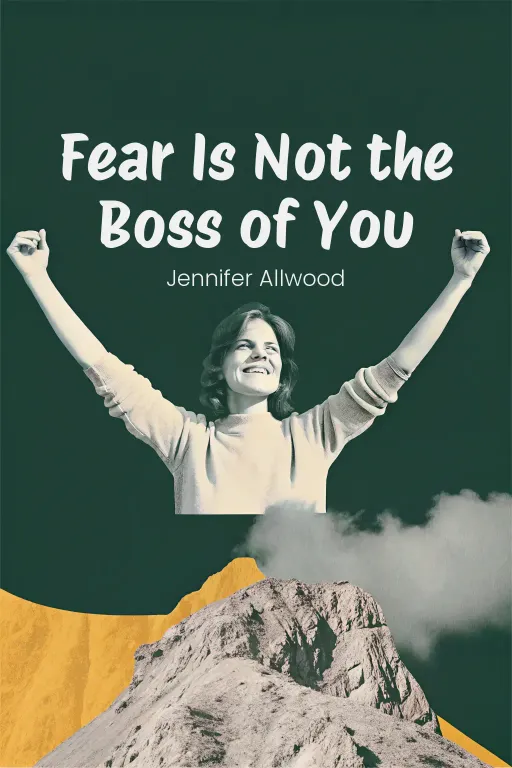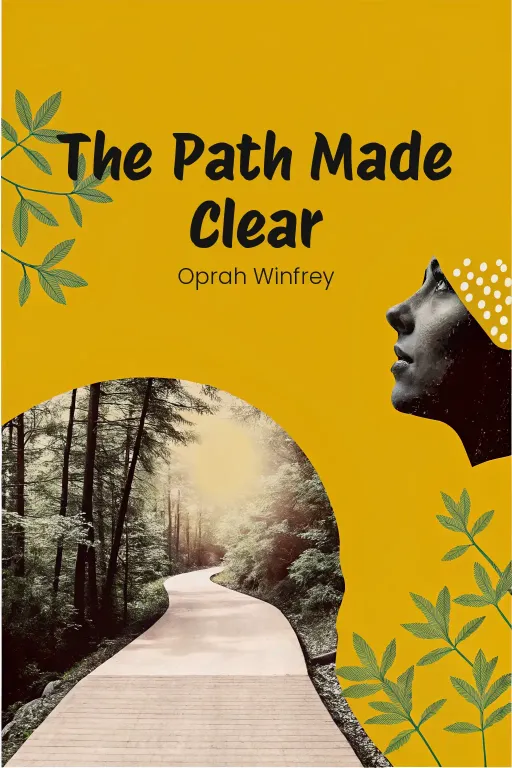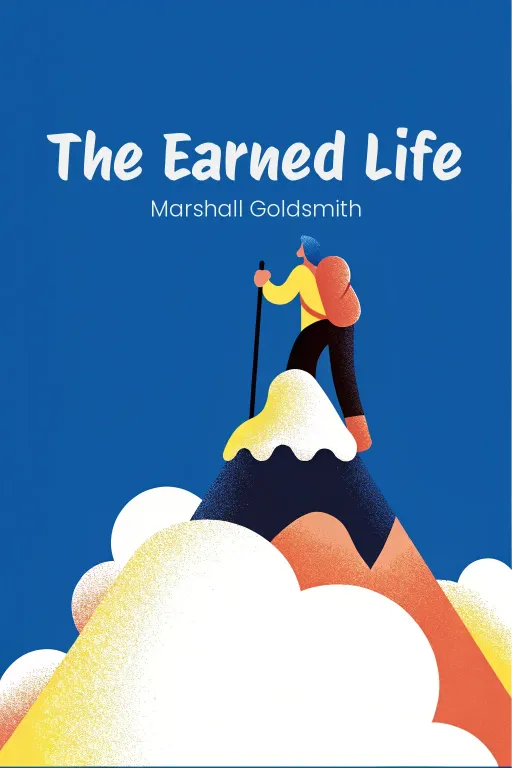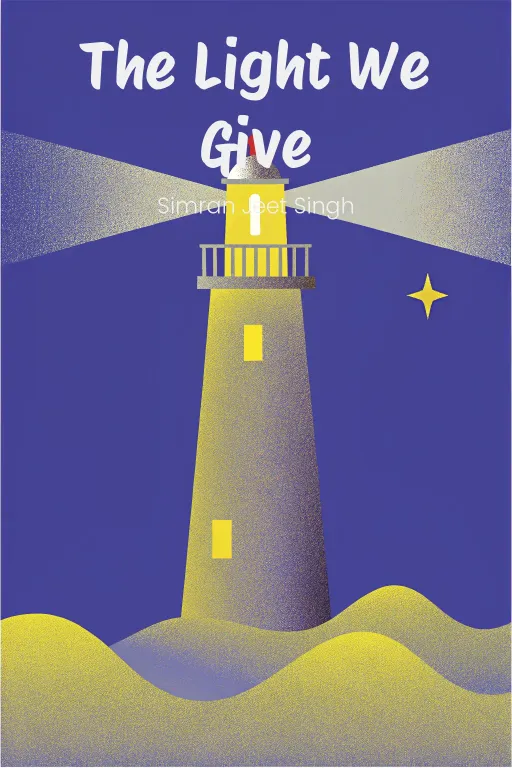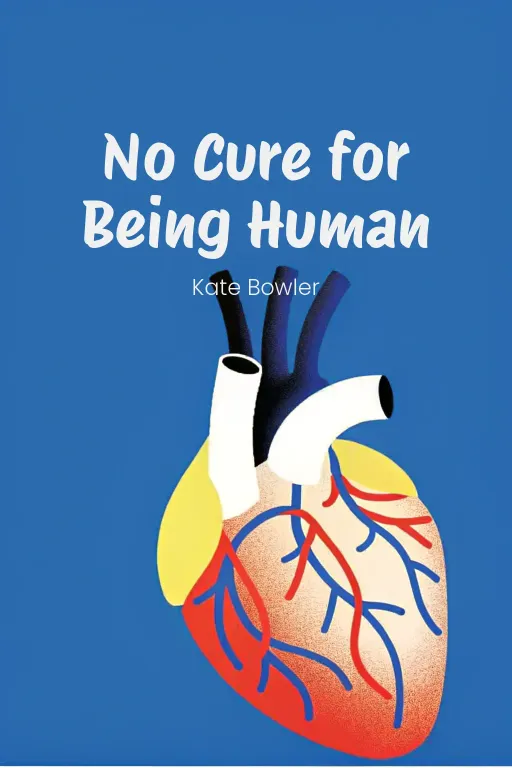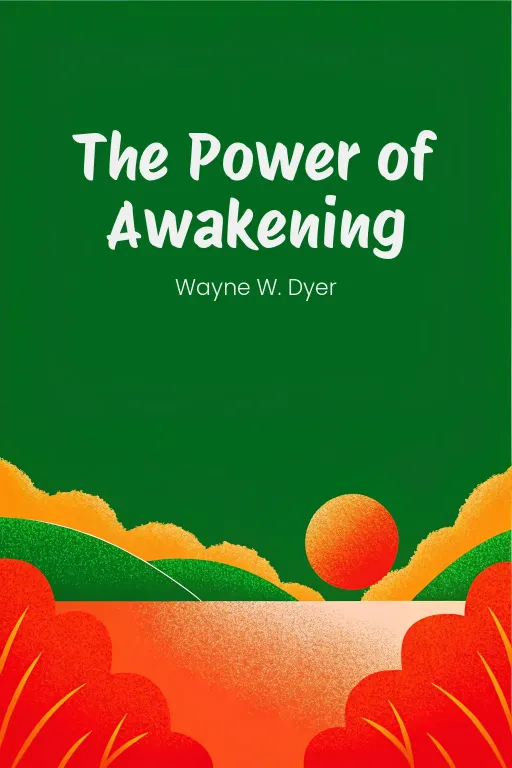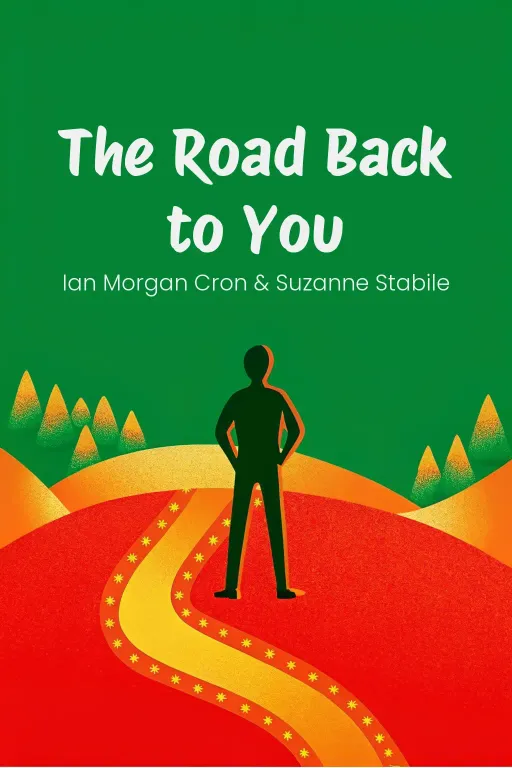
Design a Life That Matters: 5 Keys
Podcast by Beta You with Alex and Michelle
Life Lessons from the Monk Who Sold His Ferrari
Introduction
Part 1
Alex: Hey everyone, welcome back! Let's jump right in with a question that really makes you think: When it's all said and done, what will people remember about you? Or, to put it more bluntly—who will actually miss you when you're gone? Michelle: Whoa, Alex, a bit heavy for a start, don't you think? But okay, I get it. It does make you pause and reflect, right? Like, what have you “really” contributed lately, beyond just the daily grind? Alex: That's exactly it. It's the central theme of Robin Sharma’s book, Who Will Cry When You Die?—it’s full of life lessons designed to push us toward a more meaningful, intentional existence. Sharma looks at everything from pinpointing your unique purpose to the everyday habits that create joy, resilience, and strong connections. Michelle: Exactly, and he's realistic about it. It’s not all about grand gestures. He focuses on the small, daily choices that accumulate. So, it's not another one of those "quit your job and find yourself" narratives. Alex: Exactly! That’s what makes it so appealing, I think. It's grounded and actionable, but still truly inspiring. The book is like a gentle but firm reminder to re-evaluate and think about how we can live with more intention, kindness, and positive impact. Michelle: I'm definitely on board with living a life of purpose, but some of this can sound easier said than done, right? That's where we come in—to unpack these ideas and maybe poke a few holes in them along the way. Alex: Precisely! So, here’s what we’re going to dig into today. Think of it as a blueprint for designing a life of purpose, focusing on five key elements: uncovering your life’s purpose, boosting your personal effectiveness, achieving emotional fulfillment, nurturing genuine relationships, and creating a legacy that lasts. They’re like steps on a staircase to a life well-lived. Michelle: Okay, but don’t worry, we’re not going to make you climb Mount Everest here. We'll break it down into practical, relatable terms. Think of purpose as your compass. Effectiveness? Those are your tools. Emotional fulfillment is the fuel that keeps you going. Connections are like the teammates who keep you company on the journey. And legacy? That’s the view from the top. Alex: Perfectly put, Michelle! Stay tuned as we dive into each of these elements and see how we can apply Sharma’s wisdom in our day-to-day lives.
Discovering and Embracing a Purposeful Life
Part 2
Alex: Okay, Michelle, let's dive in. First up: discovering your calling. This is really the foundation of everything. Robin Sharma says that living with purpose starts with truly understanding ourselves – what makes us tick, what truly excites us, and ultimately, how we want to be remembered. Michelle: Right. And that brings us back to that slightly morbid question: "Who will cry when you die?" As you said, it's not about dwelling on death. It's about hitting pause and asking, "What impact am I actually having?" But Alex, doesn’t all this feel a bit… overwhelming? Like, suddenly I have to start constructing my legacy? Alex: I hear you, “legacy” can sound huge and abstract. But Sharma breaks it down nicely. It's not just about grand gestures, but about the ripple effect of our daily choices. His father taught him to live so that when your time comes, the world cries while you rejoice. Not about statues, but about the little ways you've touched people. Michelle: Okay, but how do we find this elusive "calling?" It's not like it arrives via express mail. Sharma gives us those questions – what makes you alive, how do you want to be remembered – but someone could just freeze up, right? What if you just… don't know? Alex: That's where self-discovery comes in. Sharma suggests practical ways to get moving. He talks about reflection, even just five or ten minutes of journaling or quiet thought to consider what energizes and fulfills you. Michelle: So, like, compiling a highlights reel of what feels authentic to you? That makes sense. Knowing me, though, I'd stare at a blank page and write, "What makes me come alive? Coffee and pizza." Not exactly profound. Alex: Well, as they say, start where you are. And if coffee and pizza are your thing, maybe dig deeper into why – is it comfort, connection, creativity? Another tool is crafting a personal mission statement. Think of it as your North Star – who you want to be and what you stand for. Michelle: Hmm, a mission statement. Something like, “I, Michelle, solemnly swear to be properly caffeinated before taking on the world?” Okay, I see his point. Even a single sentence about your core values brings clarity. But what about people stuck in jobs that are totally misaligned? What do they do then? Alex: That's a great question, and Sharma addresses it. He doesn’t suggest quitting everything overnight. Instead, gradually integrate more of what aligns with your gifts into your life. Side projects, volunteering, or even just reframing your current attitude while you plan bigger changes. Michelle: That sounds more manageable – a course correction of one degree at a time instead of a full 180. Speaking of manageable, let's talk about kindness. We hear it all the time – be kind, pay it forward – but how does that fit into a purposeful life? Alex: Ah, kindness – so simple, yet so powerful. Sharma quotes Aldous Huxley – "Let us be kinder to one another” – and makes kindness a pillar of purpose. He shares a beautiful story of a woman who sent a tithe check to someone who had spiritually supported her. Michelle: A tithe check? Okay, that’s not something you hear every day. But I’m guessing it wasn’t about the money itself, right? It’s the intent behind it. Alex: Exactly. It may have seemed small, but it carried significance for both. Sharma’s point is that even small acts of kindness can create ripples, inspiring others to act. It’s a reminder to be intentional, even with the little things. Michelle: Okay, I get the ripple effect. But what about when life’s exhausting? You’re juggling a million things. Kindness to strangers probably isn’t top of the list. It almost feels like a luxury reserved for when we aren’t in survival mode. Alex: You make an excellent point, Michelle. That's why Sharma emphasizes starting small. He mentions smiling at someone, holding a door, paying for a stranger's coffee. Micro-moments that don't demand much, but remind us we're all connected. They shift our focus outward, which is helpful when stressed. Michelle: Okay, micro-gestures I can handle. I also like the idea of tracking them – a "Kindness Journal," maybe. A gamified way to pay attention to the good. Maybe I'll even make a competition out of it. Loser buys coffee. Alex: I love the creativity, Michelle! You'd be surprised how cultivating consistent kindness – even in small ways – can change your focus. But there's one final piece: perspective. Sharma's thoughts here challenge how we interpret the world and our struggles. They are a real game-changer. Michelle: Ah, perspective – the classic art of “looking on the bright side.” What's Sharma's take?
Enhancing Personal Effectiveness
Part 3
Alex: So, after you've figured out your purpose, the next thing, according to Sharma, is using your awareness to actually make those changes. That leads us to today's topic: how to be more effective in your personal life. It’s about making sure your actions, your energy, and even your daily schedule are all pointed in the right direction. Michelle: Okay, so we’re moving from the big "why" to the nitty-gritty of "how." Sounds like we’re actually putting things in motion, what Sharma thinks of as connecting what you intend to do with what you actually do. So, where do we even start? Alex: It all starts with being disciplined. Sharma puts it this way, “tough love,” – basically, being kind enough to set high standards for yourself, but also being firm enough to actually stick to them, even when it's not easy. Michelle: Tough love, huh? Does this mean waking up super early, running all the time, and eating health food? Because I can do "tough," but the "love" part? I might need some convincing. Alex: Well, it's not supposed to be a punishment. It's about getting into habits that move you closer to the person you want to be. Sharma uses Olympic athletes as an example. They aren't just talented, they're super disciplined. They get up early, they eat carefully, and they work really hard. They put their long-term goals first, even if it means feeling uncomfortable now, because they know it'll be worth it in the end. Michelle: True, but most of us aren't trying for Olympic gold. We have limits, like kids, jobs, or, you know, Netflix. How can regular people be this disciplined without burning out, do you think? Alex: That's where setting boundaries comes in. Sharma says it's important to purposefully say "no" to things so you can really focus on what matters. He tells a story of a craftsman who cut out distractions to get really good at what he did. It wasn’t about doing everything, it was about doing the “right” things really, really well. Michelle: Okay, so the craftsman was super focused. But hold on, what does "setting boundaries" look like in the real world? It sounds easier than it is. Saying no can feel awkward, even a little scary, especially at work or with friends. Alex: Definitely, and Sharma has some practical advice for this. One thing he suggests is making a list of daily non-negotiables – two or three important things you commit to doing, no matter what. Think of it as organizing your day around the things that really move you forward, whether that's sending an important email, exercising, or spending time with family. And when you need to say no, he suggests being polite but firm. Something like, "I'd love to help, but I'm focusing on a key priority right now," gets the message across without causing hard feelings. Michelle: That makes sense – respectful, but clear. And this weekly reflection thing he talks about? Looking back at where you set good boundaries and where you didn't? That sounds like a good way to adjust without feeling guilty all the time. Alex: Exactly. It's about learning from your week and adjusting your boundaries so you can improve. Which leads us to personal effectiveness: managing your time and energy. Sharma says that, while both are limited, how you manage them can change everything. Michelle: Time and energy management – the never-ending battle of modern life. Where does he suggest we start? Alex: One thing he talks about is the "Rule of 21." The idea is simple – it takes three weeks of doing something consistently to make it a habit. The first few days are the hardest, like launching a rocket, but once you get going, it becomes much easier. Michelle: So, three weeks of just pushing through? Let me guess – another story about waking up early to prove his point? Alex: Actually, yes! Sharma uses the example of a young professional who decided to wake up at 5 a.m. every day for three weeks. At first, it was super hard, but by the end of the 21 days, it had become normal for them, and it made them way more productive. Michelle: Okay, but that person probably wasn't up late watching Netflix all night, right? Making a habit like that is one thing, but how do you deal with feeling tired or stressed? Those things can mess up even the best plans. Alex: Sharma agrees, which is why he says dealing with worry is a key part of managing your energy. He talks about "worry breaks" – setting aside 15 minutes each day to focus on your worries, write them down, and figure out what you need to do about them. It's a way to deal with stress in a healthy way instead of letting it drag you down all day. Michelle: That's actually pretty smart – setting aside your worries instead of letting them take over. And then there's sleep, right? Sharma makes sleep sound magical. Alex: Exactly. Sleep is the most important thing for managing your energy. He suggests simple things like having a bedtime routine, not looking at screens before bed, and making your bedroom a relaxing place. Studies show that even small changes can improve your focus, mood, and productivity. Michelle: I like that he focuses on practical things – less “be perfect,” more “doable steps.” And then there are morning routines. Sharma's a big believer in starting the day with a plan, and I’ve heard his advice about "The Platinum 30." What’s that all about? Alex: The Platinum 30 is a 30-minute ritual to get your day started right. It involves taking care of your mind and spirit through things like meditation, journaling, or reading. A good morning ritual isn't just about getting more done; it's about getting yourself centered before you start your day. Michelle: Let me guess – a peaceful room, candles, and the sound of birds? Alex: Well, not everyone lives in a perfect setting, Michelle. Sharma points out that successful people, from CEOs to artists, make time early in the morning because it's quiet and peaceful then. Even 10 minutes of thinking or planning can make a big difference. Michelle: Hmm, so these habits, and mornings, act like a way to launch yourself into being productive. I have to admit, putting all these strategies together sounds pretty powerful. From being disciplined to setting boundaries to managing your time, it's like creating a system to make sure you're performing at your best.
Inner Growth and Emotional Fulfillment
Part 4
Alex: So, once we’ve got our personal effectiveness sorted, the next piece of the puzzle is inner growth and emotional fulfillment. Robin Sharma really nails it when he says this isn’t just a nice-to-have—it’s what fuels lasting happiness and a balanced life. This part really gets into our emotional and psychological well-being, focusing on things like gratitude, resilience, and forgiveness. They’re like the cornerstones of growing from the inside out. Michelle: Ah, here we go… the feel-good toolbox. Gratitude journals, reframing exercises, writing forgiveness letters. I have to ask, Alex, how is jotting down “I'm grateful for my latte” every morning supposed to magically transform my emotions? Alex: <Laughs> You’re not totally wrong, Michelle. Gratitude “is” a big part of it, but we’re not talking about just listing surface-level stuff. Sharma argues pretty convincingly that actively practicing gratitude can really shift how you see things. He shares the story of a woman from Washington State, who had this profound experience of spiritual support and showed her gratitude through a letter and a donation. The point wasn't the money, but the intention, the acknowledgment, and the ripple effect it set off. Michelle: So, instead of just a casual “thanks,” she made it a concrete act. But the skeptic in me is asking: warm fuzzies aside, what’s the actual benefit here? I mean, from a scientific perspective, why does gratitude matter so much? Alex: That's a great question, Michelle. Studies actually show that gratitude can rewire your brain, making you less stressed and more emotionally resilient. Sharma sees it as this surprisingly powerful practice that goes beyond just feeling good for a moment; it creates lasting positivity. And he gives actionable tips, like writing thank-you notes. Handwritten ones, specifically. They’re more intentional and personal, and the act of writing them deepens connections. Michelle: Okay, handwritten notes… I can see that. Emails do feel kind of disposable, don’t they? But hold on—Sharma doesn’t expect us to suddenly morph into hyperactive letter-writing machines, does he? Alex: Not exactly, Michelle. But he does suggest making it a regular thing. Maybe writing a letter once a week to someone who's made a difference or been there for you. It's not about the quantity, it’s about the thought and intent. Michelle: Gratitude as an investment—I can get on board with that. But what about those gratitude journals? Aren't they a tad… predictable? Alex: Predictable, maybe, but undeniably effective. Sharma suggests just five minutes at the end of the day to think about three specific things you’re grateful for. And it's not just listing what went well, but “why” those things were meaningful. It cultivates mindfulness and, over time, it changes how we perceive the world. Gratitude helps you zoom in on what you have instead of what’s missing. Michelle: Okay, so practical and accessible. I’ll give you that. It sounds more like actively navigating your mental state rather than pretending everything's sunshine and rainbows. But where does resilience fit in? I’m hearing a lot about finding joy, but what about riding out the storms when life’s anything but joyful? Alex: Resilience is super important. And Sharma sees it as something we have to actively develop. He tells a story—I love this one—about two patients in a hospital ward. One looks out at a beautiful landscape and describes it so vividly to the other. It's a world full of color and hope. But, after he passes, it turns out the window actually faced a blank wall. The story really underscores how joy and perspective often come from within, not from what's happening around us. Michelle: Right, perspective as a choice. Honestly, though, that's easier said than done. When you're really in the thick of it, how do you make the decision to frame things positively when it feels like the world is crashing down? Alex: That's where reframing comes in. Sharma recommends writing down your challenges and really thinking about not just how hard they are, but the lessons they contain. Asking “What can I learn from this?” helps you go from feeling like a victim to feeling like a learner. And, this isn't about pretending things are great when they aren't, it's acknowledging the struggle but also spotting the chance for growth. Michelle: So, less “everything happens for a reason” and more practical reframing? I can get behind that. But let’s bring it back to real life—how do you turn this perspective-building into something useful you can “do”? Because tough times usually don’t give you a break for reflection. Alex: And that’s where a resilience journal comes in handy. Sharma suggests writing down tough times and how you got through them. It’s a way of reminding yourself, in those really dark moments, that you’ve faced challenges before and you can do it again. Those past wins serve as proof of your own strength and adaptability. Michelle: So, like having a personalized survival guide? I like that idea. And speaking of battles, what about all that emotional baggage we carry around? You know, the grudges, the regrets, the "why did I say that?" moments. What’s Sharma’s advice on dumping that weight? Alex: Forgiveness is key here. Sharma uses this analogy of carrying a backpack full of rocks—each grievance adding to the load. Forgiveness doesn't excuse what others did, but it absolutely lightens “your” emotional burden. Letting go frees up space for peace and personal growth. Michelle: I see the value, but forgiveness can feel almost impossible in some cases. Does he have any tips for… actually getting there? Alex: He does. He talks about writing a "forgiveness letter." But this isn't something you send—it's for you to process those feelings and release them. Sharma also stresses self-compassion as part of forgiveness. When you mess up or fall short, he says, treat yourself with the same kindness you'd offer a friend. Michelle: So, forgiveness isn't just about letting others off the hook, it's also about being kinder to yourself. But come on, Alex, isn’t that easier said than done? Some wounds go pretty deep. Alex: Absolutely, Michelle. And Sharma doesn’t gloss over that. Forgiveness isn’t a light switch; it's a journey. It involves recognizing the pain and then making a conscious decision to move forward. And ultimately, it's about setting “yourself” free, not excusing the harm. Michelle: Okay, I get the logic—holding onto resentment just gives the other person power over you. And I guess linking gratitude with resilience and forgiveness creates this sort of emotional powerhouse, right? Alex: Exactly! Gratitude keeps you focused on the positive, resilience keeps you steady when things get rough, and forgiveness helps you let go of what’s holding you back. Together, they create the kind of mindset that supports emotional well-being through all the ups and downs.
Relationships and Social Connections
Part 5
Alex: Beyond emotional well-being, creativity, and reflection, there’s another critical piece to leading an intentional life—our relationships and social connections. Robin Sharma reminds us that while inner growth is vital, true fulfillment often flourishes through the bonds we nurture. Today, we're focusing on the interpersonal aspects of growth, where our ties with family, friends, and community amplify personal and communal fulfillment. Michelle: Ah, relationships—the ultimate double-edged sword, right? They can bring us the greatest joy, or, let's be honest, the greatest chaos. But seriously, I get it. No matter how much you work on yourself, your connections, or lack thereof, can really make or break your overall sense of happiness, can't they? Alex: Exactly, Michelle. Sharma emphasizes that investing in relationships isn’t just about warm fuzzies, it’s foundational to a meaningful life. He shares this beautiful sentiment that when we strengthen our bonds, we’re not just giving back, we’re also growing ourselves in profound ways. Michelle: Alright, I'm on board. So, where does he start in this whole relationship thing? What's his opening move? Alex: He starts with strengthening bonds through shared experiences, especially with family. Sharma points to something as simple yet impactful as regular family meals. He remembers his own childhood, where the dining table was sacred. His father always started meals with questions like, “What was the best thing that happened to you today?” Michelle: That’s a cool tradition—turning meals into mini life debriefs. Makes you think about all the times we just scarf down dinner while scrolling through our phones or rushing to the next thing. It’s like, the simple act of eating together has lost its weight in this super busy, super distracted world. Alex: Precisely! Sharma suggests reclaiming that space, designating at least one meal a day where everyone gathers without screens. No distractions. Just face-to-face connection. It’s about quality, not quantity. Even if it's just for half an hour, asking questions like, "What made you laugh today?" fosters open communication and strengthens those bonds. Michelle: Okay, but let me throw in a real-world wrench here. What about families where everyone’s on completely different schedules? You know, parents working late, kids with sports… how do you make a consistent routine like that actually happen? Alex: Great question, Michelle. It's not about rigid perfection. Even a weekly family meal, maybe Sunday brunch, can be that touchpoint for deeper connection. And Sharma offers creative ways to make those moments meaningful, like rotational storytelling. Everyone takes a turn sharing a story based on a theme, like kindness or a life lesson. It’s a practice that kind of creates a shared narrative within families. Michelle: Alright, I can get behind that. Plus, I imagine storytelling makes those moments way more memorable. But family's just one piece of the puzzle, right? What about friendships? Those can often get completely sidelined as life gets busier, can't they? Alex: Absolutely, and Sharma has a lot to say about cultivating deep, resilient friendships. He shares a story about a close friend who supported him during a tough time in his career. This friend consistently reached out, offering small but meaningful gestures of care. Things as simple as regular phone calls to check in. It really showed how, in true friendships, vulnerability and support are non-negotiable. Michelle: Right, because those surface-level friendships—"Hey, how's work? Good? Cool, same"—aren’t going to cut it when things get real. And yet, opening up to others can feel pretty risky. How does Sharma suggest we build those deeper connections? Alex: He emphasizes consistency and intention. Simple habits, like scheduling regular check-ins, go a long way. For instance, dedicating 30 minutes once a week to catch up with a close friend. He also suggests practicing “highs and lows” conversations – sharing one positive experience and one challenge. It creates space for empathy and shows that vulnerability can be met with care, not judgment. Michelle: OK, I like that "highs and lows" idea—makes the conversations feel real without turning into oversharing marathons. But how do you strike the balance between taking care of yourself and being overly available? Because nobody wants to become the go-to emotional dump site 24/7, either, right? Alex: Great point! Balance is key. Sharma talks about setting boundaries within friendships, too. Support doesn’t mean self-sacrifice; it means showing up intentionally, both for them and for yourself. That could mean “really” listening when you're on a call, but also knowing when to step back and recharge. Michelle: It's good to know it's okay to have limits, even in friendships. Alright, family meals, check. Deeper friendships, check. Let's zoom out to the bigger picture now. Sharma also delves into serving the community. Where does that fit into this whole relationship framework? Alex: It's all about contribution and the ripple effect it creates. Sharma gives the example of a successful insurance professional who regularly volunteered his time. While his work brought him material success, his volunteerism gave him profound emotional and spiritual fulfillment. He realized that helping others didn't just give him perspective, but it also reinforced his gratitude for his own blessings. Michelle: That's a powerful shift, gratitude through service. But it could also sound daunting to someone who's just trying to keep their own life together, right? What if you don’t have the time or energy to go all-in on huge volunteer projects? Alex: That’s where micro-volunteering comes in. Sharma highlights small, manageable acts of kindness, like participating in a local food drive or helping out at an animal shelter. Even brief efforts can have a tangible impact, and they easily fit into a busy schedule. Michelle: So, no grand gestures required, just regular doses of humanity. I can work with that. And he ties this into servant leadership somehow, doesn't he? Alex: Exactly. Servant leadership is about prioritizing the well-being of others and setting aside your own ego. Sharma references figures like Jean Valjean from Les Misérables, whose transformation from selfishness to altruism illustrates that helping others can shape a deeply meaningful life. It's a reminder that what we give multiplies, not just materially, but emotionally and spiritually. Michelle: So, to sum it up: family bonds give us roots; deeper friendships help us weather life’s storms; and giving back connects us to a larger purpose. It's this incredible cycle where what we invest in others comes back to us tenfold, isn't it?
Living Fully and Leaving a Legacy
Part 6
Alex: Absolutely. So, as relationships flourish, the focus naturally shifts towards embracing lifelong learning and improving ourselves holistically. And this leads us to the last, crucial element of Sharma's vision: living a full life and leaving a legacy that lasts. It’s about broadening our personal growth to think about how our actions affect the people around us. It pulls together all the themes we’ve talked about—purpose, effectiveness, connection—into this one idea of a meaningful life. Michelle: Alright, so we're zooming out for the big picture. No sweat, just figure out your lasting impact on the world, right? “Legacy” is one of those trigger words, isn't it? Either it pumps you up, or it sends you into a full-blown existential crisis. Am I supposed to be discovering the cure for cancer here, or is it simply about how I treat the barista? Alex: Exactly! Sharma stresses that legacy isn't about doing huge, grandiose things. It's about the little, everyday ways we affect people. Think of it in layers. First, celebrate life and build strong bonds. Then, make sure your actions line up with your deeper purpose. If you consistently show up in small, meaningful ways, how people remember you will naturally take shape. Michelle: Okay, let’s break it down. What does “celebrating life” actually look like in practice? I'm guessing it's a bit more involved than just popping bottles every time something goes your way. Alex: Sharma suggests finding joy in shared experiences, in rituals – things as simple as having meals together with loved ones. He talks about his childhood dinners, where his father would ask, "What's the best thing that happened to you today?" It wasn't just about eating; it transformed dinner into a chance to express gratitude and connect with each other. Michelle: I like that. It’s an active choice without being complicated. Makes you think about how often we breeze through those moments. Your kid's trying to tell you about their day, and you're half-buried in your emails under the table. Sharma's dad had the right idea: slow down, make eye contact, listen. Simple, and yet, strangely uncommon. Alex: Totally. Sharma challenges us to reclaim those moments. To banish distractions, even if just for dinner. He suggests screen-free meals! It's a small tweak that completely changes the vibe. And it's not just for family; it applies to any group we care about—friends, teams, communities. Michelle: Speaking of small tweaks, Sharma's idea of a “purposeful legacy” feels even more abstract. He keeps asking, "How do you want to be remembered?". I can see how people would get stuck on that – like it's some kind of existential multiple-choice question with no right answer. Alex: That’s totally fair, and Sharma gets that it can be daunting. That’s why he suggests tools like creating a “legacy statement”—a simple reflection of your core values and how you want to live. For example, you might write, "I want to be remembered for kindness, creativity, and helping people feel seen." It's not about single-handedly solving climate change; it's about finding clarity and direction. Michelle: Okay, so not a binding contract with humanity, just a compass. But here’s my question: what do you do when your “big purpose” feels a million miles away from where you are right now? Let’s say you’re stuck in a soul-crushing job or just constantly putting out fires. How do you even begin to think about legacy when you’re just trying to make it through the week? Alex: That's where those small, aligned steps make all the difference. Sharma shares this touching story about his father putting a Sanskrit poem on their fridge. It read, "Spring has passed, summer has gone, and winter is here. And the song I meant to sing remains unsung." It's a reminder not to put off the things that “really” matter – whether that's reconnecting with family, starting a creative project, or volunteering. Michelle: Right. But, let’s say you’ve managed to take those steps. You’re singing your song – or humming it, at least. What role do things like hope and optimism play in building this legacy? Because life’s not exactly a feel-good movie all the time, is it? Alex: That’s where this idea of personal agency comes in. Sharma puts it beautifully with the mantra, "If it’s going to be, it’s up to me." It’s about taking ownership, even when things aren’t perfect. He tells the story of a friend who injected purpose into his daily commute. He used his train ride to do stretches, turning otherwise useless time into something productive. It's a perfect illustration of finding purpose, even in the most mundane routines. Michelle: I like that – turning the everyday into something intentional. But what about when life throws you a curveball? Sharma doesn’t sugarcoat setbacks, right? He talks about reframing struggles as potential positives, but let’s be honest, that sounds a lot easier said than done. Alex: Absolutely. But Sharma offers some practical ways to reframe things. One option is to journal about setbacks, not just as problems, but as learning opportunities. If a promotion falls through, ask yourself, "What can I learn from this? What other doors might this open?" It’s about finding ways to grow from disappointment instead of getting stuck in it. Michelle: Right, I get that. It’s like rewriting the story – you're not just a character; you're the one writing it. And then there’s the whole angle of kindness as a cornerstone of legacy, right? Sharma quotes Aldous Huxley: "Let us be kinder to one another." That one hits hard. Alex: It “really” does. Sharma believes that even the smallest acts of kindness have a ripple effect. He shares a story about a super-successful professional who volunteered regularly. It wasn’t the money he made that defined his legacy—it was the lives he touched through his quiet, constant generosity. Michelle: Right, so we’re back to the idea that it’s the gestures that don’t cost much but make a huge difference. But, for the skeptics listening—and by "listening," I mean me—how do we keep giving when, frankly, the world feels like it’s draining us dry? Alex: Start small. Sharma recommends noticing those small opportunities to give back—pay for someone's coffee, hold the door open, or write a thank-you note. And don’t forget to make it sustainable. A “kindness jar” is one idea—drop in notes about kind things you've done or seen, and then revisit them when you need a pick-me-up. It reinforces the habit, even when you're going through a rough patch. Michelle: A kindness jar, huh? Sounds a little cheesy, but I’ll admit, there’s something powerful about keeping track of positivity. So, to sum it all up: living fully means cherishing the moments we share, connecting our actions to our purpose, and always looking for ways to affect others, even in the smallest ways. And building a lasting legacy? Well, that's just the natural result of living intentionally, one day at a time.
Conclusion
Part 7
Alex: Alright, Michelle, we've covered so much today, haven't we? From finding your purpose, to nurturing relationships. Then mastering personal effectiveness, fostering growth, and ultimately, thinking about the legacy we leave behind. Robin Sharma “really” nails it when he says it's those small, intentional daily choices that shape a meaningful life. Michelle: Exactly. It's about taking this grand idea of a "life well-lived" and breaking it down into actionable steps. Things like actively practicing kindness, setting healthy boundaries, and “really” being present in our interactions. Even something as simple as putting your phone down during dinner! Alex: Exactly that. And I think Sharma's core question, "Who will cry when you die?", is so powerful. It’s a challenge, almost, to stop just going through the motions and “really” start living with intention and genuine care. It's not necessarily about erecting monuments. It's more about the positive impact you have, the ripple effects you create in other people's lives, right? Both big and small. Michelle: Which, let's be honest, doesn't require a massive inheritance or endless amounts of free time. You can start right where you are. Maybe it's just truly listening in a conversation, or finally sending that thank-you note you've been meaning to write. Purpose and legacy aren’t some distant, "someday" goal. We build them, brick by brick, every single day. Alex: Absolutely. So, here's a little challenge for our listeners this week: take just one deliberate step toward living more purposefully. Write down a value you want to embody, reach out to someone you care about, or just do one small, random act of kindness. Whatever feels right for you. Michelle: And hey, if you're feeling stuck, there's always the kindness jar idea! Future you might appreciate that reminder that even during tough stretches, you made the effort to put some good into the world. Alex: Beautifully put, Michelle. Life's journey isn't going to be perfect, and it's not “really” meant to be. But with purpose, kindness, and genuine human connection, we can certainly make it profoundly meaningful. Michelle: True that. Alright, until next time: go live with intention, and maybe hold a door open for someone. See you all! Alex: Take care, everyone!

